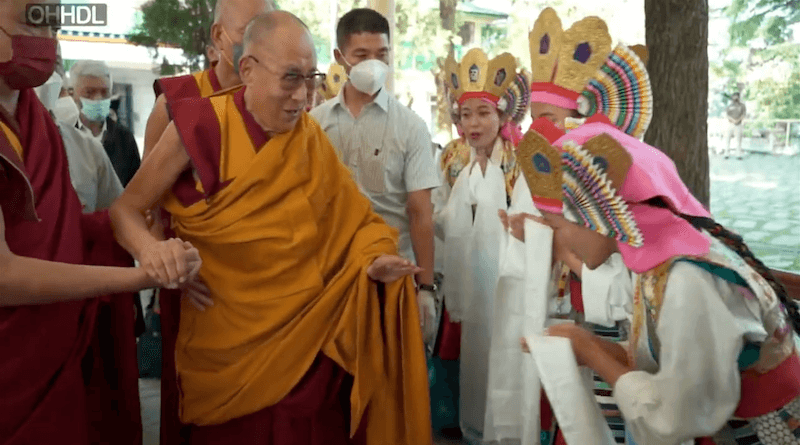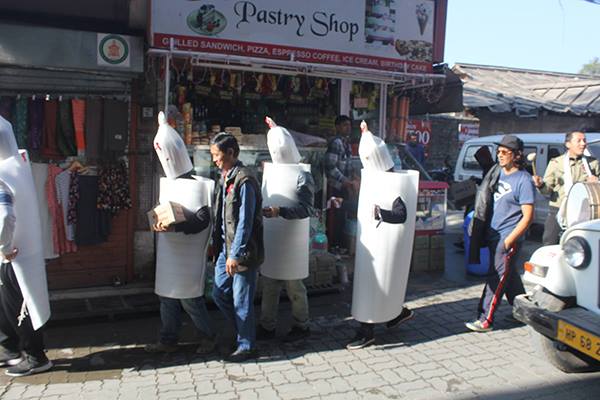Dalai Lama grants special audience to participating troupes of Shoton, Middle Way Approach Conference

DHARAMSALA, 7 April: “I have fond memories of Shoton Festival in Lhasa, Tibet” His Holiness the Dalai Lama said as he granted a special audience to the participating troupes of the 25th Shoton festival underway here at the Tibetan Institute of Performing Arts (TIPA) in the exile headquarters of the Tibetan people along with participants of the Middle Way Approach Conference.
Recalling the shoton festival in Tibet, the Dalai Lama said he had fond memories of the festival and described the festival observed for four days in independent Tibet as the longest holiday of the summer.
“I used to be so happy during the Shoton in Lhasa,” the octogenarian Tibetan leader said beaming and added, “There won’t be tuition classes and I will also get to meet my mother.”
He further described the festival as a part of Tibet’s culture and recalled the different opera troupes that used to perform in Tibet.
The Tibetan spiritual leader then added that Tibetans in exile must now continue to protect and preserve that culture.
“Though we are refugees, we should take pride as we possess a unique tradition and culture,” the Dalai Lama added.
While Tibet is under Chines occupation now, the Tibetan Nobel Laureate stated that China’s repressive policies will not last and that gradually there is a hope that Tibet’s religion and culture will rule them in the future.
Much to the delight of the crowd the Dalai Lama then reassured to live over 100 years of age.
“I am healthy and confident to live for 10-15 more years,” the Dalai Lama said drawing cheers and applause from the congregation.
Speaking on the significance of the Middle way approach conceived by him and adopted unanimously as a policy by the Tibetan Parliament-in-Exile, the Dalai Lama said “It is simply impossible to fight and expel the Chinese out of Tibet. Middle way policy that seeks to coexist with the Chinese is beneficial.”
“What we want is a genuine autonomy comprising the three traditional provinces of Tibet to protect Tibet’s language and culture,” he added.





